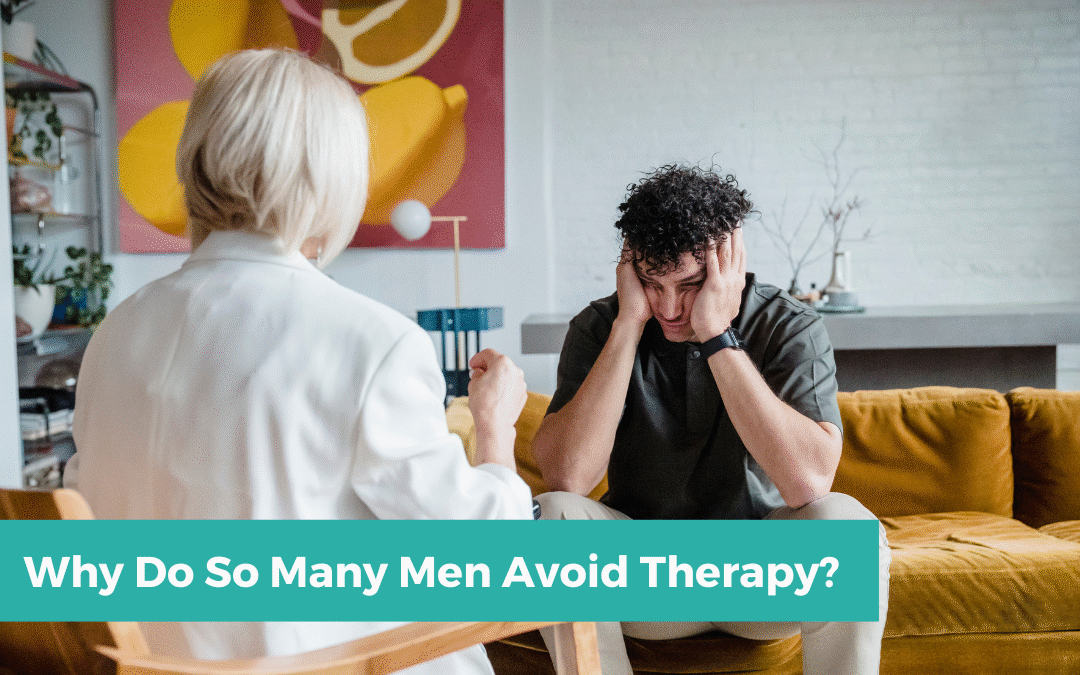This week is Men’s Health Week, and it’s the perfect time to remember that mental health is health.
Let’s talk about something we hear a lot in the therapy room (and just as often outside it):
“He said he didn’t want to burden anyone.” “He said he should be able to handle it.” “He waited until he couldn’t get out of bed.”
The truth is, men’s mental health deserves more attention, not less. And yet, many men avoid seeking help until they’re in crisis. So why does this happen?
The myth of the strong, silent type
For a long time, boys were taught to toughen up, be strong, don’t cry, and just get on with it. That messaging doesn’t disappear in adulthood. Many men grow up believing that asking for help is a sign of weakness or failure.
According to Beyond Blue, an average of 7 men die by suicide every day in Australia. It’s the leading cause of death for men under 45. Despite this, men are still less likely to seek help or speak openly about their mental health.
One way to challenge this is through education and early intervention. Programs like Mental Health First Aid (MHFA) are designed to teach people how to notice signs of mental distress and support someone before things reach a crisis point.
As Rob Mason from MHFA puts it:
“We need to move away from the idea that men should ‘toughen up’. Seeking help and offering help is what makes us strong.”
What actually happens in therapy?
Many men assume therapy is just talking about your feelings, being judged, or being told what’s wrong with you.
In reality, therapy is a collaborative process. It’s about understanding patterns, finding practical tools, and working out what matters to you. It’s about making space to think clearly and make decisions that align with your values. And no, you don’t have to cry or sit on a couch talking about your childhood (unless you want to).
We often hear that men feel like they’ve failed if they end up in therapy. But therapy isn’t a last resort. It’s a sign that you’re paying attention to your mental health, just like you would your physical health. Getting support early often means things don’t get worse.
Why wait until crisis?
Many blokes will say they didn’t realise how bad it had gotten until something snapped — their relationship, their health, or their ability to function day to day.
This wait until breaking point approach is unfortunately common. It’s linked to stigma, lack of mental health literacy, and fear of being seen as weak. It’s also why training like MHFA is so important. It helps us notice the signs early and encourages open, safe conversations that can lead to real support.
What needs to change?
We need to:
- Normalise mental health conversations among men
- Bust the myth that real strength means staying silent
- Offer more culturally safe and inclusive spaces for men to get help
- Train communities and workplaces to spot the signs and act early
At The Therapy Hub, we work with boys, men, and families navigating life’s hardest moments. We also offer Mental Health First Aid training to workplaces and community groups who want to do better at supporting those around them.
We all have mental health. And it’s okay to get support.
If you or someone you know is struggling, don’t wait. Whether it’s therapy, a training session, or just a quiet conversation over coffee reaching out is the first step.
Want to know more about what therapy actually involves or how to bring MHFA training to your team? Get in touch.








Recent Comments